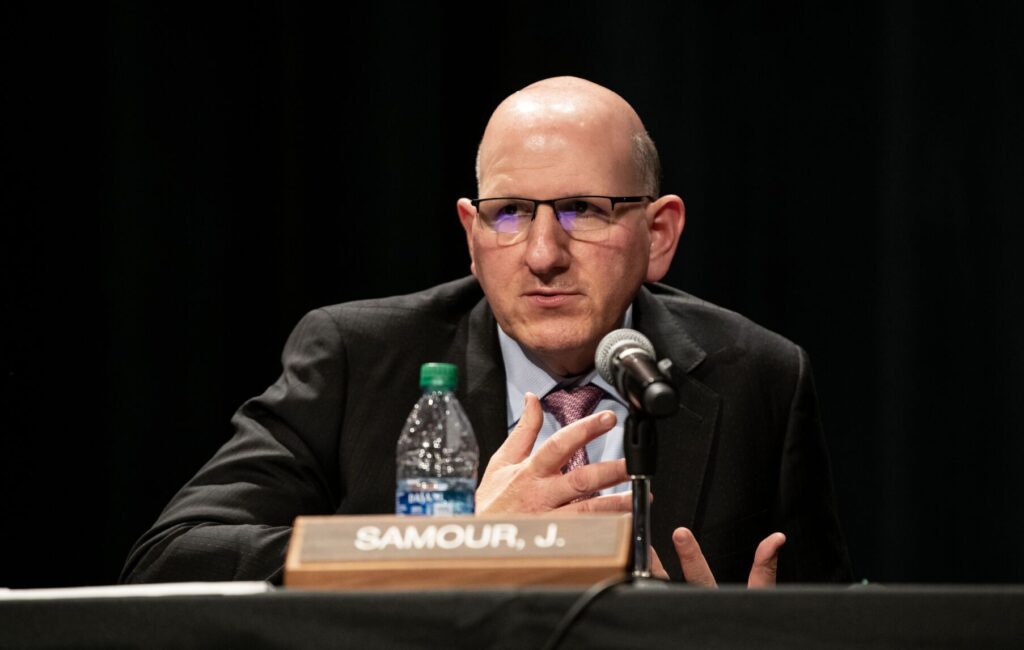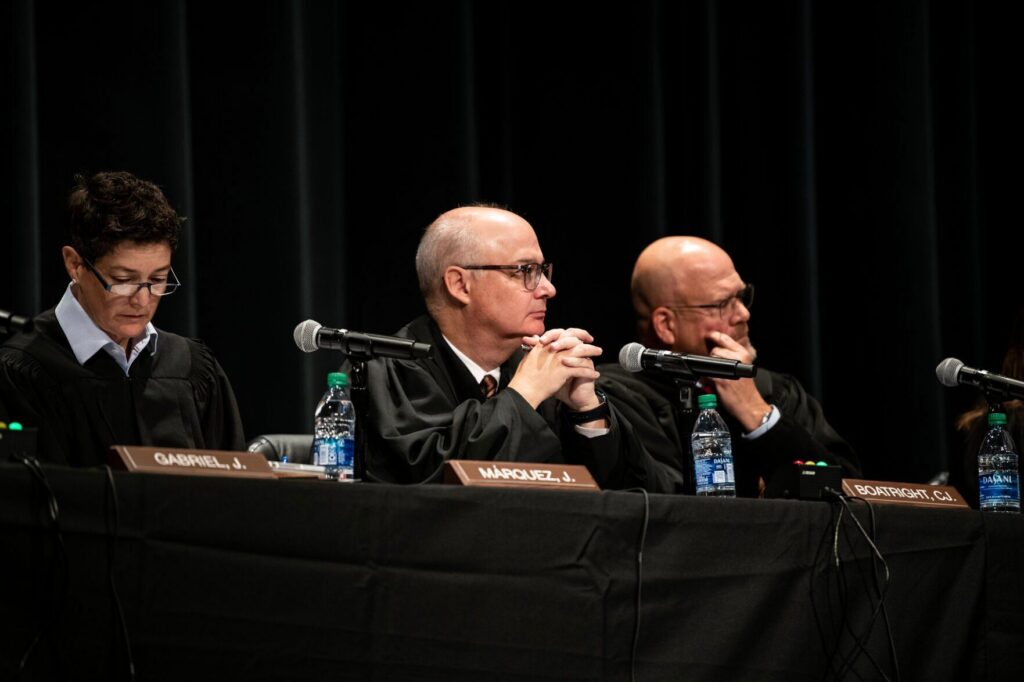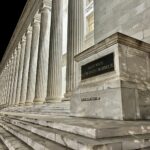As appeals flow into Colorado Supreme Court, Trump disqualification ruling faces scrutiny

In the hours and days after a Denver judge found Donald Trump remains eligible for the 2024 presidential ballot despite engaging in an insurrection, her reasoning has come under scrutiny from legal scholars and the parties on both sides of the litigation, who are now seeking review of the decision.
On Friday, in response to a petition from four Republican and two unaffiliated voters in Colorado, District Court Judge Sarah B. Wallace went further than any judge to date in analyzing Trump’s eligibility for office under Section 3 of the 14th Amendment. Section 3 bars state officials, members of Congress or “an officer of the United Sates” from occupying state or federal office if they took an oath to the U.S. Constitution but subsequently “engaged in insurrection.”
Wallace found all conditions for ordering Trump’s disqualification were satisfied, except for one: Section 3 does not apply to presidents.
“I was surprised by the basis for the ruling because I regard the claim that the president is not an officer to be perhaps the weakest objection,” said Michael C. Dorf, a constitutional law professor at Cornell University. “I would not be surprised to see that conclusion reversed on appeal.”
Observers also suggested the judge’s order serves the broader purpose – perhaps intentionally – of providing a legal record about Trump’s involvement in the Jan. 6, 2021 attack on the U.S. Capitol.
Andrea Katz, an associate law professor at Washington University, acknowledged the immediate effect of Wallace’s reasoning was to “gut the 14th Amendment” as it applies to a presidential election. However, Wallace also used her order to detail how Trump intentionally incited his supporters to violence, and she credited findings of the congressional committee that investigated the Jan. 6 attack and found Trump bore responsibility.
“Essentially, this is a judicial stamp of approval that said, ‘We do not give any credence to Trump’s version of the facts’,” Katz said.
She added that Wallace had done something unusual by leaving the key issue resolving the case – whether Section 3 applied to presidents and presidential candidates – for last, only after describing Trump’s culpability at length.
Seth Barrett Tillman, a professor at Maynooth University in Ireland who has previously argued the president is not “an officer of the United States,” agreed some people might criticize Wallace for deciding issues she did not have to.
But even if Wallace’s views on the insurrection end up being irrelevant, “my own view is that what people think about Trump and Jan. 6 is already largely set in stone,” Tillman said. “Judge Wallace’s finding will not move support into or out of the Trump column.”

On Sunday, the lawyers for the petitioners submitted their request for the Colorado Supreme Court to review Wallace’s decision. They argued the historical record belied the notion that the president is not “an officer of the United States,” and pointed out Trump himself claimed he was such an officer in one of his criminal cases this year.
“As for common sense, there would be no reason to allow Presidents who lead an insurrection to serve again while preventing low-level government workers who act as foot soldiers from doing so,” they wrote. “And it would defy logic to prohibit insurrectionists from holding every federal or state office except for the highest and most powerful in the land.”
Trump’s lawyers, meanwhile, are contesting the bulk of Wallace’s other conclusions – specifically, that she had jurisdiction to hear a Section 3 challenge in the first place, that Trump engaged in an insurrection, and that the First Amendment did not protect Trump’s efforts to halt the certification of President Joe Biden’s victory.
“President Trump seeks review to ensure that if this Court takes up this case on appeal, it will consider the full scope of the constitutional, interpretive, and evidentiary issues,” his lawyers wrote.
One prominent legal scholar has suggested Wallace issued a strategic decision by definitively characterizing Trump’s conduct as an insurrection that would disqualify any other office holder, even as she identified narrow grounds to keep Trump eligible for office.
“My suspicion is that having built a wall of fact and law so high that no appellate court can climb over it,” said constitutional scholar Laurence H. Tribe on MSNBC, “she threw him a lifeline that was thin, so threadbare, so likely to fall apart, that although he could claim victory, no appellate court could uphold putting him on the ballot on that basis. So, she basically had it both ways.”
Dorf, the Cornell professor, also speculated Wallace intended to send a message with her analysis of Trump’s culpability.
“I suspect the thinking was that it’s important to make clear to the public that this ruling was not a ‘vindication’ of Trump’s position, because he has a history of claiming that minor procedural victories somehow exonerate him of the underlying charges,” Dorf said.
The secretary of state must certify Colorado’s presidential primary ballot by Jan. 5, 2024.













